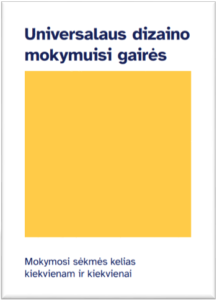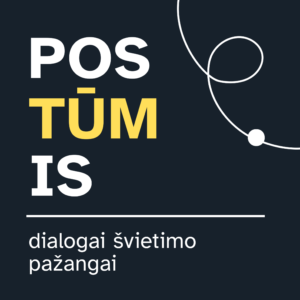Be the first to get the most important news about our activities, events and other important information!
The Concept of Millennium Schools’ Programme
The aim of the Programme
To create integral, optimal and high standard conditions for learning and elimination of achievement gap in every municipality of Lithuania.
Vision of the Programme
Every child in Lithuania has the opportunity to study in an open and modern school. A consistent, gradual modernization of all Lithuanian schools.
What does the Programme rely on?
Basic principles
Tailored solutions for each municipality to strengthen already functioning schools.
Motivation of municipalities to cooperate in the process of preparing and implementing joint education progress plans.
Motivation of schools to form networks and create new connections between themselves. Intellectual and infrastructural resources created during the programme are made available to students and teachers at other schools.
Throughout the programme municipalities are consulted by the Millennium Schools’ Academy.
Information is being prepared.
Areas of school performance improvement
Leadership in action is strengthening the personal trust and involvement of the school head and teachers in school life, mobilising and enabling the school community to work together for the success of each pupil, creation of positive relationships in the school community and the positive school microclimate, ensuring a safe physical and emotional learning environment for all.
Inclusive education is strengthened through activities aimed at building the competencies of the school community to ground their work in the principles of universal design for learning. Also, through improvement of skills to teach children with various educational needs. Furthermore, through teamwork of education support team, teacher assistants and teachers that ensures quality education of students with special educational needs as well as creation of safe and appropriate educational environments for them.
Cultural education is strengthened through activities when culture or art (or artists, creators) collaborate with the school community in order to solve educational or education-related problems. Through cultural education students and teachers develop various competencies.
STEAM is strengthened through implementation of integrated activities of various disciplines (science, technology, and others) while applying elements of engineering and creative activities (art) and basing it all on mathematical thinking. STEAM education activities enable students to gain comprehensive knowledge of real-life phenomena, learn its practical application and proactive use of various skills while solving a problem.
5 areas of investment
- Infrastructure
- Equipment and tools
- Continuous professional development for teachers and school leaders
- Accessibility of municipality’s educational resources
- Educational activities for students and school communities
Evaluating the program‘s impact
5 key indicators
- Decreased achievement gaps in at least 50 percent of municipalities (comparing results in 2022, 2025 and 2030)
- Increased Lithuanian language and literature scores of the 10th graders (comparing results in 2022, 2025 and 2030)
- Increased mathematics scores of the 10th graders (comparing results in 2022, 2025 and 2030)
- Decreased number of combined classes (comparing numbers in 2021, 2025 and 2030)
- Increased number of students per teacher (comparing numbers in 2021, 2025 and 2030)
What are we seeing already?
As of today, 22 municipalities (stream 1) have completed or are in progress of completing 69,5 percent of all planned activities (802 of 1154 planned).
- Achievement gaps decreased in 25% of municipalities (stream I) (from 2022 to 2023)
- Since 2022 Lithuanian language and literature scores of the 10th graders increased: 71,3 (2022) – 76,4 (2023)
- Since 2022 mathematics scores of the 10th graders increased: 23,8 (2022) – 43,5 (2023)
- The number of combined classes decreased: 4,2 (2021) – 3,5 (2022) – 1,8 (2023) – 1,6 (2024)
- Number of students per teacher: 11,4 (2021) – 11,3 (2022) – 11,5 (2023) – 11,5 (2024)
Examples of good practices
|
Ukmergė municipality |
“Schools 24/7” – a region-wide school network that organizes activities beyond formal education and extracurriculars, open for students and the community around the clock. It is both a physical and an online platform for schools to share good practices and change the usual model. |
| Kretinga municipality | A networking model that invites teachers from all schools to participate in the same continuous professional development programs, to co-create modern educational materials and then implement them in the newly created learning spaces (each of the 5 schools is developing a unique learning space which will be open for students from all other schools and accessible based on a shared timetable). |
| Panevėžys municipality | A city-wide approach to education based on STEAM principles and the city’s strategy of “Industry 4.0”. All schools are improving their current learning spaces directed at helping students develop 21st century skills. Teachers are working in city-wide networks and together with municipality’s education coordinators are creating a STEAM education standard which will be piloted, improved and then implemented across all schools and levels. |
| Utena municipality | A very strategic municipality-wide approach to implement inclusive education practices. To make this process easier there is a network model that involves every school: open lessons, events and meetings to share best practices, creation of models and algorithms for learning support provision and the use of modern tools, equipment and methodologies. |
| Kaunas municipality | A strong focus on improving students interest and achievement in mathematics. Continuing schools’ cooperation with the university of Harvard (teachers’ continuous professional development in English and also implementation of Harvard’s mathematics program), creating MatLab’s in every school (analysis of commonly made mistakes and creation of video lessons for students). |
21 of the 58 municipalities plan to implement Universal design for learning in teachers’ everyday practice – this means moving away from differentiation towards a more individualized approach.
6 of the 58 municipalities plan to implement STREAM education methodology – this is meant to expand of an already successful STEAM education practice by adding more focus on reading and literacy.
Find out more: Millenium Schools




